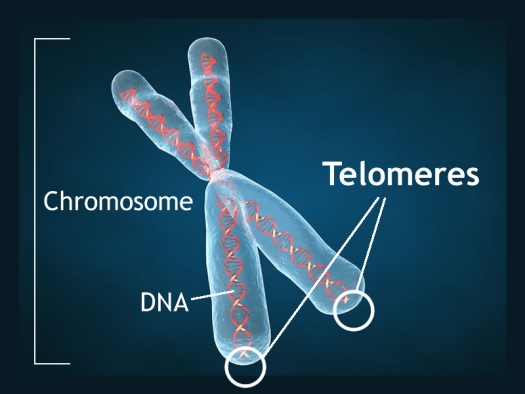LITHIUM’S AMAZING DIVERSITY OF ASSETS
Editor’s Note: Lithium is vastly underutilized. There is wide spread ignorance about its many assets and misconceptions about its few side effects. Here is an update that should be of interest to potential users, family members, and clinicians.
Lithium:
- Prevents unipolar and bipolar depression
- Augments effects of antidepressants in unipolar depression
- Potentiates the effects of atypical antipsychotics in treating mania and depression
- Reduces inflammation
- Normalizes some aspects of cardiovascular risk
- Normalizes secretions for monocytes and leukocytes
- Increases neurogenesis, BCl-2, and hippocampal and thalamic volumes
- The increases in neuroprotective factors occurs at brain levels below typical therapeutic dosages
- Protects against memory deterioration
- Lowers dementia risk in old age
- Reduces suicide clinically and at minute concentrations in the water supply
- Lengthens telomeres and increases longevity
- Reduces size of lesions in models of stroke, AIDS, and Huntington’s chorea
- Normalizes circadian rhythms
- Reduces manic-like behavior induced by clock gene mutations
- Prevents calcium currents and increased firing rate in stem cells from bipolar patients
- Induces minimal to no weight gain on long term follow up
- Does not increase risk of kidney failure when given at blood levels of .6 to .8 blood levels
- Protects against spine and hip osteoporosis
Conclusion: With so many assets and so few liabilities, physicians and patients should reconsider the benefits of lithium and use it more often, not only in the few who respond to it as a monotherapy, but as a adjunct to the many other treatments of bipolar disorder. This should be a “no brainer” as lithium will very likely help some have fewer problems from their illness and may even help them live longer.
Many of these points are summarized in the open access publication: Robert M Post, The New News About Lithium: An Underutilized Treatment in The United States, Neuropsychopharmacology accepted article preview 4 October 2017; several new updates have been added from the International Society on Bipolar Disorders meeting, Chicago, June, 2023.
Short Telomeres Associated with Family Risk of Bipolar Disorder
Telomeres are bits of genetic material at the end of each strand of DNA that protect chromosomes as they replicate. Short telomeres have been linked to aging and a variety of medical and psychiatric diseases. Stress and depressive episodes can shorten telomeres, while treatment with lithium can lengthen them.
Telomere length is a heritable trait, and a 2017 study by researcher Timothy R. Powell and colleagues suggests that shorter telomeres are a familial risk factor for bipolar disorder.
The study, published in the journal Neuropsychopharmacology, compared the telomere lengths of 63 people with bipolar disorder, 74 of their immediate relatives (49 of whom had no lifetime psychiatric illness, while the other 25 had a different mood disorder), and 80 unrelated people with no psychiatric illness. The well relatives of the people with bipolar disorder had shorter telomeres than the unrelated healthy volunteers.
Relatives (both well and not) and people with bipolar disorder who were not being treated with lithium both had shorter telomeres than people with bipolar disorder who were being treated with lithium.
Another finding was that longer telomeres were linked to greater volume of the left and right hippocampus, and improved verbal memory on a test of delayed recall. This study provides more evidence that taking lithium increases the volume of the hippocampus and has neuroprotective benefits for people with bipolar disorder.
Traumatic Events in Childhood Linked to Shorter Telomeres
Telomeres are bits of DNA at the end of chromosomes that protect the DNA as it replicates. Shorter telomeres have been linked to aging and increases in multiple types of medical and psychiatric disorders. A 2016 article in PNAS, the Proceedings of the National Academy of Sciences of the United States of America, reported that cumulative life adversity and particularly stressful or traumatic events in childhood, predict shorter telomere length.
The study by Eli Puterman and colleagues included 4,590 individuals from the US Health and Retirement Study who reported stressful events that had experienced. A single experience of adversity was not linked to short telomeres, but lifetime cumulative adversity predicted 6% greater odds of having shorter telomeres. This result was mainly explained by adversity that occurred in childhood. Each stressful or traumatic event in childhood increased the odds of short telomeres by 11%. These were mostly social or traumatic experiences rather than financial stresses.
Lithium Lengthens Telomeres
 Telomeres are repeated DNA sequences that sit at the end of chromosomes and protect the DNA as it is replicated. Depressive episodes and age can reduce the length of telomeres. Lithium treatment increases telomere length. At the 2016 meeting of the Society of Biological Psychiatry, researcher Martin Schalling reported that the longer a patient takes lithium, the more their telomere length increases.
Telomeres are repeated DNA sequences that sit at the end of chromosomes and protect the DNA as it is replicated. Depressive episodes and age can reduce the length of telomeres. Lithium treatment increases telomere length. At the 2016 meeting of the Society of Biological Psychiatry, researcher Martin Schalling reported that the longer a patient takes lithium, the more their telomere length increases.
According to Schalling, people who respond well to lithium treatment show greater increases in telomere length than those who respond poorly to lithium.
While some cancers are associated with long telomeres, lithium use has not been found to increase cancer risk. In fact, lithium treatment can decrease the risk of certain cancers of the gastrointestinal, respiratory, and endocrine systems.
Crack Cocaine Use and Early Life Stressors Shorten Telomeres
Telomeres are repeated DNA sequences that sit at the end of chromosomes and protect them during cell replication. Shorter telomeres are associated with aging and an increase in multiple medical and psychiatric disorders, while some healthy behaviors including exercising, eating healthy, meditating, and avoiding smoking can help maintain telomere length. Lithium treatment also increases telomere length.
Recent research by Mateus Levandowski and colleagues found that people who were dependent on crack cocaine had shorter telomeres than elderly women without psychiatric illnesses, particularly if the crack cocaine users had also experienced stress early in life, such as maltreatment or neglect.
Since short telomeres are associated with a variety of medical and psychiatric problems and premature aging, the combined effects of drug use and early life stressors are likely to have an adverse impact on people who have experienced both.
Diabetes Drug Pioglitazone May Improve Depression
 Researchers believe there is a link between diabetes and depression. Some drugs used to treat type II diabetes and its associated inflammatory symptoms have been found to improve depression as well. These include metformin, rosiglitazone, and pioglitazone. A recent study by Natalie Rasgon and colleagues explored the effects of pioglitazone treatment on people with insulin resistance, insulin sensitivity and/or pre-diabetes and ongoing depression. The researchers hoped to find that adding pioglitazone to the patients’ regular antidepressant regimen might improve depression by reducing inflammation.
Researchers believe there is a link between diabetes and depression. Some drugs used to treat type II diabetes and its associated inflammatory symptoms have been found to improve depression as well. These include metformin, rosiglitazone, and pioglitazone. A recent study by Natalie Rasgon and colleagues explored the effects of pioglitazone treatment on people with insulin resistance, insulin sensitivity and/or pre-diabetes and ongoing depression. The researchers hoped to find that adding pioglitazone to the patients’ regular antidepressant regimen might improve depression by reducing inflammation.
The study also touched on the role of telomere length in mental and metabolic disorders. Telomeres are repeated DNA sequences that sit at the end of chromosomes and protect them during cell replication. Telomeres get shorter with aging and with psychiatric illnesses. In the study, telomere length was used to predict whether patients’ depression would improve.
Rasgon and colleagues found that in those patients taking both pioglitazone and antidepressant treatments (compared to those who received a placebo in addition to their antidepressants), longer telomeres predicted better antidepressant response. This suggests that telomere length could be used as a biomarker—that is, measuring a patient’s telomere length could reveal whether that patient’s depression is likely to respond to an anti-inflammatory treatment such as pioglitazone. The research was presented at a 2015 scientific meeting.
Short Telomeres in a Rat Model of Depression, Lithium Reverses Abnormality
Telomeres are repeated DNA sequences that sit at the end of chromosomes and protect them during cell replication. Telomeres get shorter with aging and with stressors or psychiatric illnesses. Researcher Alexandre Mathe and colleagues recently found that in a line of rats bred to be more susceptible to stress and depression-like behavior, hippocampal telomeres were shorter than in normal rats or rats bred to be less susceptible. The susceptible rats also had lower levels of enzymes that maintain telomere length. Both telomerase activity and Tert (telomerase reverse transcriptase) expression were reduced in the susceptible rat compared to the other rats. However, lithium reversed the low levels of telomerase activity and Tert expression.
Editor’s Note: Lithium increases hippocampal volume in people, and also increases human telomerase. Researcher Lina Martinsson reported in 2013 that lithium increases telomere length in white cells. Now lithium has increased hippocampal telomerase in a rat model of depression. Short telomeres are associated with aging and increased vulnerability to a wide range of medical and psychiatric disorders. Since people with bipolar disorder are prone to memory problems, medical problems, and short telomeres, they might want to talk to their physician about including lithium in their treatment regimen, if they are not already taking it.
Loving-Kindness Meditation Can Lengthen Telomeres in Women
Telomeres sit at the end of DNA strands and shorten with each cell replication. Shorter telomeres are associated with aging and an increase in multiple medical and psychiatric disorders, while some healthy behaviors including exercising, eating healthy, avoiding smoking, and even being married can help maintain telomere length. New data from researcher Elizabeth Hoge and colleagues suggests that a particular type of meditation can lengthen telomeres.
Previous research has found that three months of full-time meditation increased telomerase, an enzyme that repairs telomeres. Loving-Kindness meditation, which comes from the Vipassana Buddhist tradition and focuses on positive intentions, unselfish kindess, and warmth towards all people, has been found to produce positive effects in individuals who practice it, including increasing positive emotions and sense of purpose, and bringing about improvement in physical symptoms including headaches, nasal congestion, and weakness. Hoge and colleagues hypothesized that people who practice Loving-Kindness meditation would have longer telomeres than control participants of the same age, gender, education level, and experience of depression.
Participants who practiced Loving-Kindness meditation had been doing so near-daily for at least four years, and averaged 512 lifetime hours of this particular type of meditation, and 4,927 lifetime hours of any type of meditation.
The researchers found a trend toward longer relative telomere length in the Loving-Kindess meditation group compared to the control group, and significantly longer telomeres in women who meditated than in women who did not. The researchers conclude that meditation may have a positive effect on mortality.
Other habits that are focused on others, such as caring for a spouse, volunteering in the community, and practicing compassion, forgiveness, and altruism have been found to have health benefits. In a 2012 longitudinal study of elderly participants by Loren Toussaint et al. in the Journal of Behavioral Medicine, forgiveness was associated with longevity. Thaddeus W.W. Pace et al. reported in a 2009 article in Psychoneuroendocrinology that compassion meditation reduced levels of certain inflammatory markers.
Editor’s Note: People with affective disorders or at risk for them should consider making some of these positive lifestyle practices part of their daily routine.
Childhood Adversity Associated with Shorter Telomeres
 Telomeres sit at the end of DNA strands and shorten with each cell replication. Shorter telomeres are associated with aging and an increase in multiple medical and psychiatric disorders. New research draws connections between the production of mitochondrial DNA, telomere length, the experience of childhood adversity, and mental illness.
Telomeres sit at the end of DNA strands and shorten with each cell replication. Shorter telomeres are associated with aging and an increase in multiple medical and psychiatric disorders. New research draws connections between the production of mitochondrial DNA, telomere length, the experience of childhood adversity, and mental illness.
Researcher Audrey Tyrka and colleagues divided 290 healthy adults into four categories based on whether or not they had experienced adversity in childhood and whether they had been diagnosed with a mental illness in their lifetime, including depression, anxiety, and substance abuse. The researchers also analyzed the participants’ telomere lengths and the copy number of their mitochondrial DNA. Both stressful events in childhood (such as maltreatment or the loss of a parent) and a history of mental illnesses (depression and anxiety) were associated with shorter telomeres and higher mitochondrial DNA copy numbers, a measure of cellular aging. Substance abuse was associated with higher mitochondrial DNA copy numbers.
Editor’s Note: This research replicates earlier findings that adversity is associated with shortening telomeres. The finding that mitochondrial DNA could play a role in the long-term effects of early life adversity and mental illnesses is new.
Patients with Schizophrenia Have Short Telomeres, Atypical Antipsychotics Increased Telomere Length in Animals
 Telomeres sit at the end of DNA strands and shorten with each cell replication. A person’s percentage of short telomeres increases with aging. Telomeres also shorten with childhood adversity and as a function of number of depressive episodes.
Telomeres sit at the end of DNA strands and shorten with each cell replication. A person’s percentage of short telomeres increases with aging. Telomeres also shorten with childhood adversity and as a function of number of depressive episodes.
In a recent study, researcher Kazuya Torimi found that telomeres in white cells were shorter in 42 patients with schizophrenia compared to 56 healthy control participants.
Torimi also treated mice with various antipsychotics for 2-week periods. Treatment with atypical antipsychotics, such as risperidone, olanzapine and aripiprazole, but not typical antipsychotics like haloperidol, elongated telomere length in the hippocampus. This probably occurred through effects on serotonin.
Torimi suggests that atypical antipsychotics improve negative symptoms in part through the modulation of telomere length.
Editor’s Note: Lithium has been found to increase telomere length in patients with bipolar disorder, and appears to do this through a direct effect on telomerase, an enzyme responsible for adding to telomere length. Short telomeres are associated with a large number of medical and psychiatric illnesses.






